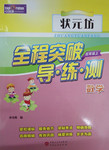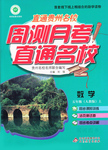题目内容
—What did David demand in the meeting just now?
—________ a chance to join the Debating Club.
A. Being offered B. Having been offered
C. To be offered D. To have been offered
练习册系列答案
 状元坊全程突破导练测系列答案
状元坊全程突破导练测系列答案 直通贵州名校周测月考直通名校系列答案
直通贵州名校周测月考直通名校系列答案
相关题目
题目内容
—What did David demand in the meeting just now?
—________ a chance to join the Debating Club.
A. Being offered B. Having been offered
C. To be offered D. To have been offered
 状元坊全程突破导练测系列答案
状元坊全程突破导练测系列答案 直通贵州名校周测月考直通名校系列答案
直通贵州名校周测月考直通名校系列答案